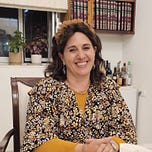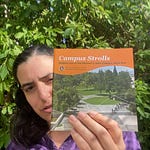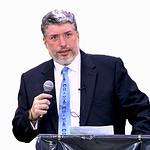Michal is one of the most cheerful, energetic, kind, and hopeful people I know. She’ll grab you and hug you and invite you to dance at synagogue. You would never know that she spent time in prison, where she was seen as one of the worst. She’s been to the lowest of lows in life, yet still maintains an upbeat attitude. Her secret, I learned, is to not think too much, and to keep doing kindnesses wherever she finds herself.
We talked about the dangers of too much positivity and trust, the impact a “cult” had on her family, getting her story written, how dating works in prison, and why my improv class is her therapy.
Her book, Give Me a Second Chance, is available from Gefen Publishing House.
There are two big takeaways from this interview that I think are important to share. Even if you don’t hear the whole thing, read this:
There is evil in this world. In her case, it was a sadistic man who called himself a Rabbi, but had no qualifications nor connections to other Rabbis, who simply wanted to prey on innocent, trusting, naive people. Michal’s desires to do good and to be a part of something good were manipulated for evil purposes.
This happens, unfortunately, far too often in this world. For example, many people in the West who sincerely desire to do good and to be a part of something good, have been manipulated into fund-raising for, protesting on behalf of, and defending the actions of Hamas, an organization that hurts both Palestinian and Israeli children and families on a scale thousands of times larger than what Michal went through.The Christians have a saying for this phenomenon: “The road to Hell is paved with good intentions.” I think it’s important for all of us to understand the psychology of how good-hearted and trusting people come to enable evil in this world.
Every one of us has a past. Some of us have made mistakes that led to irreversible negative consequences. And yet, if you’re still alive, then G-d wants you here for a reason.
Many people who live with a bad past wallow in self-hatred, self-pity, self-destruction, or live out the rest of their lives surrounded by guilt, blame, and hatred. This often leads to more mistakes, more missed opportunities to do good — possibly even causing a repeat of the initial bad situation.
And then there are others who truly wrestle with, own, and face their mistakes. Teshuva, translated as repentance (or return to who one really is,) is a very important concept. In the Jewish worldview, it is believed that teshuva is accessible to everyone. In fact, to fall and rise again is a holier voyage than to never have made a mistake. The real test is: What do you do after you fall?
For Michal to learn from her mistakes, pick herself up again, and rebuild her relationship with each of her children, is a huge and commendable process. Not only that, but she decided not to let it get her down — she throws herself into being kind to everyone she meets, into helping people learn to drive, into showing as much love as possible for the son who was most hurt. She can use the rest of her life to do as much good as she had done harm.
And I think that can serve as an inspiring decision for us all.
My question to you, dear reader: What do you do after you fall? Do you pick yourself up again, forgive yourself and move forward, contributing as much good to the world as you can? Or do you believe that people should never be forgiven, and stay stuck in the negative thoughts and energy of past mistakes?
In case it’s not clear what happened: Michal went to prison not for what she did — but for what she didn’t do.
Over their 14 years of marriage, her husband wore her down until she internalized: don’t ask questions, don’t argue, whatever I say, goes. She got used to him not being around, and worked extra hard to try to please him. When he started getting involved with dangerous men, she didn’t raise objections, but kept up her obedient, helpful attitude. When a new group he got involved in became abusive, he showed her that this was the direction their family was going in, and if Michal objected, the consequences would fall on her.
Eventually, her husband was removed from the picture. By the time the police got involved, he claimed that he had nothing to do with it, and got off, scot-free. Michal subserviently tried to be helpful and obedient, while protecting all abusive parties, instead of stopping the abuse. As a result, she spent years behind bars. In that time, she realized what she had done wrong, regretted her mistakes, and decided to turn her life around. Unlike everyone else involved, who continued on their respective trajectories. The father of her children continued to neglect them, and blamed everything on their mother. And the abusive group eagerly awaits their leader getting out of prison, so they can resume how they were living before.










